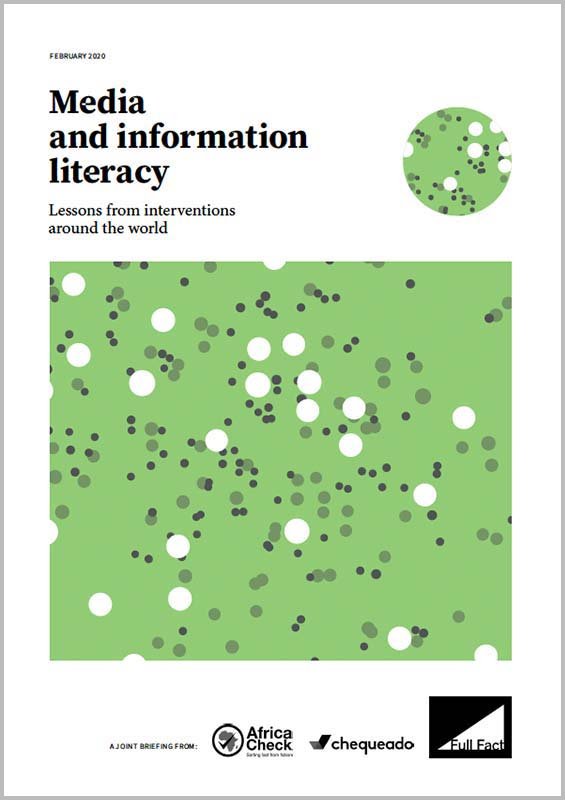Strengthening the public’s defences: how media literacy can help fight misinformation
In this briefing, Researchers at Africa Centre for Evidence and Full Fact trace the history of media and information literacy, and showcase the range of interventions fact checkers can support, to build a culture for accuracy.
There is hardly a week without a meme imparting unverified advice on social media. Fact checkers regularly catch and expose them, in an attempt to reduce the spread of false health cures, “beauty hacks”, and other spurious claims. And yet, for every claim debunked, there will be some which don’t get caught. For every verifiable false fact, there are internet “dares” whose harm comes not from the assertions they make about the world, but from the behaviours and attitudes they promote.
This briefing seeks to explore how and to what extent we can strengthen the public’s defences against these harms. This is what we mean by media and information literacy.
Join 72,547 people who trust us to check the facts
Subscribe to get weekly updates on politics, immigration, health and more.
A long-running and diverse policy agenda
Media and information literacy is broadly understood as a set of skills that empower citizens to access, evaluate and use information critically. The International Symposium on Media Education in 1982 proposed the first formal definition of this concept, paving the way for a decades-long search for adequate educational and policy interventions.
Despite the global consensus on the importance of media literacy however, there is a wide variety of policy frameworks, and even more diversity at the level of practical implementation. In some countries, like the UK and some Latin American countries, media literacy is a policy objective enshrined in legislation, and embedded in national curricula. In Africa it is driven more organically by coalitions of academics and media professionals.
We are far from having a blueprint that works for all. Differences in the populations, issues, styles of intervention and methods of evaluation adopted across the literature make it hard to generalise about a single most effective strategy. That said, the evidence makes one thing clear. There is hope.
Classroom interventions, online trainings and games
A meta-analysis of 51 interventions found that media and information literacy initiatives increased participants’ knowledge, criticism, and awareness of the influence of the media.
Interventions with more sessions had stronger positive effects, while those that tried to teach multiple elements of media literacy in fewer sessions performed worse.
Encouragingly, everyone can be educated. The briefing reviews evidence of successful classroom interventions with schoolchildren in Uganda, who became more critical of unfounded health information, but also short online training suited to adults.
Fact checkers in Argentina developed a 15min training to help readers identify checkable claims. In the UK, an online browser game was found to increase players’ abilities to spot inaccurate news.
More work is needed to improve the effect sizes of these interventions, and assess their impact in the long term. Notably, media literacy interventions will likely require fact checkers to investigate the possibility of partnerships with educators, civil society organisations and stakeholders across the public sector.
We'd love you to read the briefing
And share your feedback. Every response will help us nuance our recommendations, and bring research closer in line with fact checkers’ needs. Email us at research@fullfact.org.
